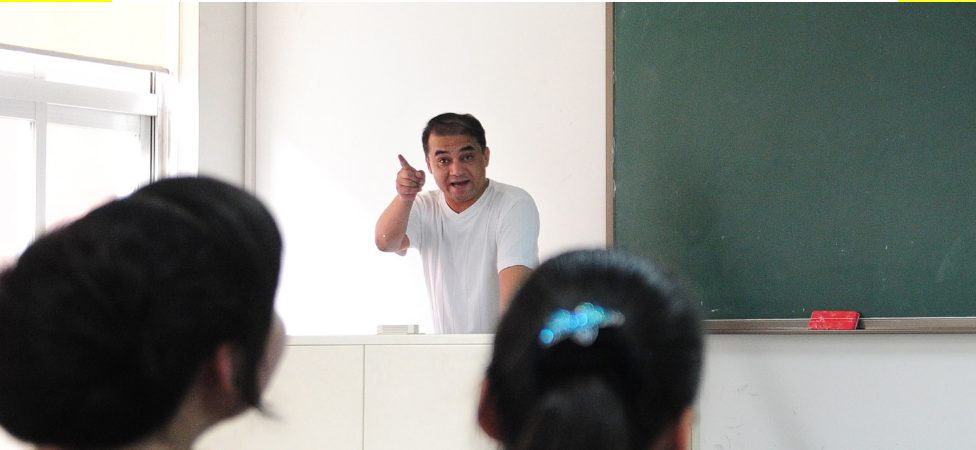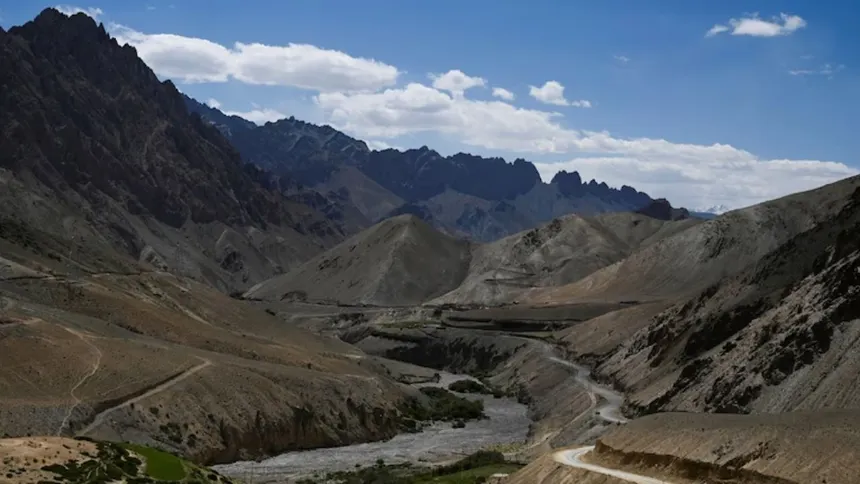China: International leaders need to step in to halt the ten years of mistreatment for the imprisoned scholar Uyghur
The international community must take concrete steps to help secure the release of the Uyghur academic Ilham Tohti, Amnesty International said ahead of the 10-year-anniversary of his conviction on baseless charges of “separatism”.
Tohti was sentenced to life imprisonment on 23 September 2014 after an unfair trial. He was targeted by the Chinese government after peacefully advocating for dialogue and conciliation between the Uyghur ethnic group and China’s majority Han population.
“When Ilham Tohti promoted cooperation and peaceful coexistence between China’s Uyghur and Han communities, the Chinese government responded with repression and imprisonment. His decade-long incarceration is a further shameful stain on China’s troubled human rights record,” said Agnes Callamard, Secretary General of Amnesty International.
“This unhappy anniversary not only reminds us of Beijing’s inhumanity. It also highlights the failure of other governments to secure Ilham Tohti’s release. The shocking milestone of his 10th year behind bars underlines the need for the international community to do more.”
The charges against Ilham Tohti stemmed from his writings and teachings on systemic discrimination and oppression faced by Uyghurs in the Xinjiang Uyghur Autonomous Region of northwest China (Xinjiang).
While critical of Chinese government policies in Xinjiang, Ilham Tohti consistently opposed violence and separatism and worked to build bridges between ethnic communities in accordance with Chinese laws.
He was awarded the Sakharov Prize – the European Parliament’s top human rights prize – in 2019.
“The bestowal of awards recognizes and affirms Ilham Tothi’s leading human rights contribution, as well as his own human rights plight. Yet what he needs most is freedom, and to achieve that he deserves unswerving public advocacy from the international community, calling for his release. That means world leaders directly demanding action from their Chinese counterparts – at every high-level meeting, every UN conference, every time,” Agnes Callamard said.
“It is the compassionate stance of Ilham Tohti that makes his imprisonment particularly heinous, and that compels the global community to do more to defend his rights. Ilham Tohti is a prisoner of conscience, and his freedom would be a crucial step in advancing human rights and justice in China.”
During his imprisonment, Ilham Tohti has reportedly been subjected to torture and other ill-treatment, including wrist and ankle shackling, prolonged solitary confinement and denial of adequate medical care and food, as well as political indoctrination.
His daughter, Jewher Ilham, has campaigned tirelessly for his release. She told Amnesty International that Chinese authorities have attempted to silence her by offering her conditional contact with him in exchange for her stopping her public advocacy on his case.
Her last conversation with her father, over Skype while she was studying in the USA, was on 14 January 2014 just hours before his arrest in Beijing. Tohti’s China-based family has not seen him since spring 2017, when their quarterly prison visits abruptly stopped.
“It should be a daughter’s fundamental right to see her father, and as a human being it is my right to call out injustice anytime I see it,” Jewher Ilham told Amnesty International.
Speaking of their last meeting 10 years ago, she said: “If I knew (that) would have been my last time communicating with my father, I would have called him for hours and hours and hours to tell him I love him. Unfortunately, many Uyghur people, many Uyghur daughters and sons, share the same fate as me.”
Since 2017, there has been extensive documentation of China’s crackdown against Uyghurs, Kazakhs and other predominantly Muslim ethnic people in Xinjiang, carried out under the guise of fighting terrorism.
In 2021, a report by Amnesty International found that the systematic state-organized mass imprisonment, torture and persecution perpetrated by Chinese authorities amounted to crimes against humanity.
Many of Amnesty’s findings were mirrored by the UN Office of the High Commissioner for Human Rights’ (OHCHR) assessment of the situation in Xinjiang, published in August 2022.
The UN report found that the “extent of arbitrary and discriminatory detention of members of Uyghur and other predominantly Muslim groups … may constitute international crimes, in particular crimes against humanity.” The report added that “the conditions remain in place for serious violations to continue and recur,” creating additional urgency for a prompt and effective effort to address the situation.
However, in October 2022, Human Rights Council member states rejected by a narrow margin a decision that would have called for a debate on the report.
OHCHR High Commissioner Volker Türk committed in December 2022 to “personally engage with (Chinese) authorities” about the grave human rights violations highlighted in the report.
In March 2024, the High Commissioner urged the Chinese government to implement recommendations of his office and other UN bodies, including those from the 2022 report. And in August 2024, the OHCHR issued a press statement highlighting glaring gaps in China’s implementation of UN recommendations, stating that “many of the problematic laws and policies remain in place.”
“It is an outrage that the persecution of Uyghurs including Ilham Tohti continues unabated, and with impunity,” Agnes Callamard said.
“Since the Chinese authorities show no signs of relenting, the onus is on world leaders to ramp up pressure on Beijing – including at the UN – to end all discrimination and arbitrary detention of certain ethnic groups and hold perpetrators of violations accountable.”
Meanwhile, Jewher Ilham continues her long wait to be reunited with her father.
“I hope you can help me bring him home,” she told Amnesty International. “I would just tell him that you don’t have to worry (about) anything anymore. Now I’m standing by your side. You’re not alone anymore.”













